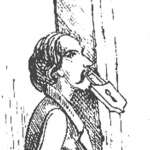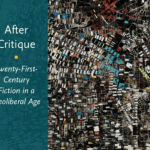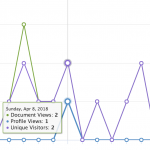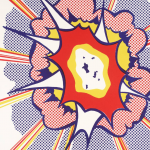technocapitalism
Infopower and the Ideology of Extraction
By engaging with Colin Koopman's work on the politics of information, Stephan Paur has a look at the technologically sophisticated ways that human beings are now at the mercy of our datasets. Rather than inhabiting a physical, populated place and taking part in communities, “the informational person” is increasingly outsourced into such things as birth certificates, personality profiles, racialized credit and other extractive ideologies.
Contemporary Posterity: A Helpful Oxymoron
In his essay, Malthe Stavning Erslev approaches the notion of post-digital from the perspective of a broader cultural phenomenon of posterioriy, emphasizing the fact that the prefix post- still allows for discussion of multidirectional and complex changes that our world is currently undergoing. In order to better grasp all the complexities and interrogate somewhat linear periodization implied by the prefix, Erslev employs the oxymoronic concept of contemporary posterity. At the same time, he ties his theoretical proposition with the extensive analysis of an online community engaging in bot-mimicry.
The Metainterface Spectacle
Building on their concept of metainterface, Søren Bro Pold and Christian Ulrik Andersen analyze the change in perception and experience that bring forth the always-on(line) mode of engaging with digital content. The notion of ‘spectacle’, in itself having a long history in critical theory, is employed here to discuss media politics and the struggle for power in terms of aesthetized computation, with their main driving forces being data analytics, surveillance and forensics. Pold and Andersen uncover how metainterface spectacle can also serve to empower political agency through reclaiming the apparatus.
Forms of Censorship; Censorship As Form
Beginning as a talk delivered at the National University of Kyiv-Mohyla Academy, Ukraine May 17, 2017, now edited and amplified for publication in the electronic book review and the 2018 collection of ebr essays forthcoming from Bloomsbury Press.
Information Wants to Be Free, Or Does It?: The Ethics of Datafication
"More is not necessarily more. Faster is not necessarily better. Big data is not necessarily better." In the effort to capture and make available data about people, digital humanities scholars must now weigh the decisions of what and what not to share. Geoffrey Rockwell and Bettina Berendt address the new ethical issues around “datafication” in an age of surveillance.
An Ontological Turn
In this review of Mitchum Huehls’ After Critique, Smith situates Huehls' “ontological approach” to the study of contemporary literature as arising from and standing in opposition to the "zombie plague" of neoliberalism.
Academia.“edu”
Investigating the question of whether academics should be concerned that Academia.edu is not an educational institution, Johannah Rodgers finds that the answers depend on your definition of “education” and which parties you ask.
A Digital Publishing Model for Publication by Writers (for Writers)
How might literary databases be seen as alternatives to the commodification of academic scholarship in for profit, subscriber platforms? Scott Rettberg and Joseph Tabbi discuss issues related to instrumentality, the global marketplace, and the digital humanities.
Reading Topographies of Post-Postmodernism: Review of Post-Postmodernism or, The Cultural Logic of Just-in-Time Capitalism by Jeffrey T. Nealon
In this essay, Laura Shackelford reviews Jeffrey T. Nealon’s “Post-Postmodernism.” Not merely an historical supplement to Fredric Jameson’s “Postmodernism,” but an attempt to devise a new critical method appropriate to our “just-in-time” present, Shacklford discusses its implications for literary practice in the 21st Century.
The Ode to Translation or the Outcry Over the Untranslatable
Natalia Fedorova claims sees the future of electronic literature in translation: just as translation from her native Russian to English can teach us about both of those languages, translations between "natural languages" and "languages of code" can clarify what makes electronic language literary.









